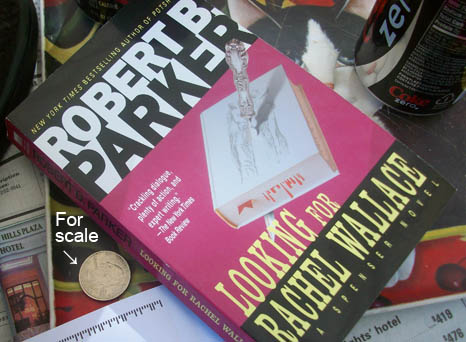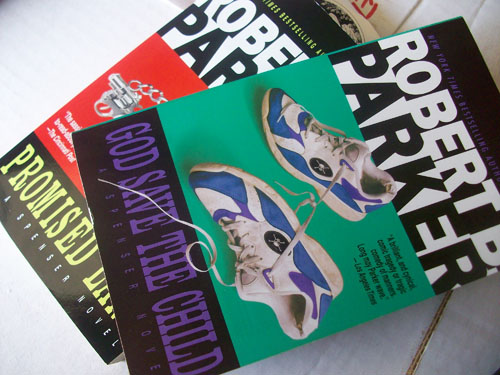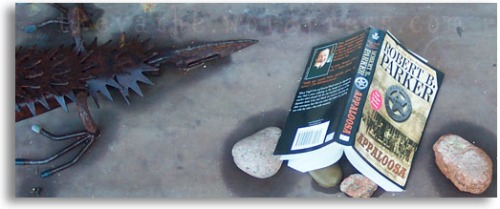 Forgive the long hiatus, gentle reader. No book reports for you these many days because I’ve been working my way through Robert B. Parker’s series of detective books featuring Spenser, everybody’s favorite Liberal muscleman, pounding “to whipped cream” all the religious (i.e. Christian) nuts (i.e. Christians), anti-gay (i.e. Christian) bigots (i.e. Christians), and Bostonian “rednecks” (i.e. Christians) who are so racist (i.e. Christian) as to oppose forced busing. The savages.
Forgive the long hiatus, gentle reader. No book reports for you these many days because I’ve been working my way through Robert B. Parker’s series of detective books featuring Spenser, everybody’s favorite Liberal muscleman, pounding “to whipped cream” all the religious (i.e. Christian) nuts (i.e. Christians), anti-gay (i.e. Christian) bigots (i.e. Christians), and Bostonian “rednecks” (i.e. Christians) who are so racist (i.e. Christian) as to oppose forced busing. The savages.
I had said all I wanted to say about Robert B. Parker and Spenser in a previous post, and nothing new has cropped up in the next six or seven books. It’s television. You like Hawk and Susan and Quirk and Spenser this week, you’ll like ’em next.
The Los Angeles Public Library failed (as not unusual) to supply me with early Spensers, and eReader, my source of “electronical” books was also a bit spotty in its spenserian offerings, and so I had actually to spend real American dollars getting titles like Pale Kings and Princes and A Catskill Eagle from this bookshop and that. Had to shell out for the one pictured above, Looking for Rachel Wallace. Not the best of the bunch so far, maybe the weakest. Women’s Lib circa 1980. Ho ho.
Still, Spenser keeps driving left hooks and right jabs into ugly mugs and making with the wiseapple comebacks, so I got what I paid for. Whether or not you will like it, I can’t say. If you want a free copy, check my recycle bin (blue) before the pickup on Friday.
Between reading (with much skipping) these hardboiled novels I’ve also been working my way through The Faerie Queene because its author shares a surname with our tough, but soft-hearted, solver of crimes. They’re not entirely different, these two writers, at least in one respect. The Elizabethan Spenser sends the reader scurrying for frequent footnote consultation. Readers of the 20th century Spenser, if born after 1980, may also need to ask their elders the meaning of various time-bound references. Tell me, aged one, whatever can Parker mean when he writes “people in a bar played Space Invaders?”















